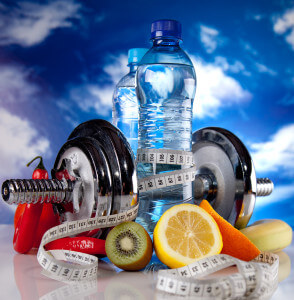Armed sports nutrition
Even sports nutritionists that are not legally obligated to become certified or licensed professionals often earn credentials through a national credentialing agency such as the Commission on Dietetic Registration (CDR) to establish professional competency in the field https://buyme4you.com.
The geographic location of a sports nutritionist greatly influences their potential earnings. For instance, those working in metropolitan areas or regions with a high concentration of sports organizations, such as California or New York, tend to earn higher salaries compared to their counterparts in rural areas. This disparity highlights the importance of context in determining salary levels.
A nutritionist is a person who advises others on matters of food and nutrition and their impacts on health. Some people specialize in particular areas, such as sports nutrition, public health, or animal nutrition, among other disciplines. In many countries, a person can claim to be a nutritionist even without any training, education, or professional license, in contrast to a dietitian, who has a university degree, professional license, and certification for professional practice….
Sports nutrition degree
Our program equips you with the advanced knowledge, research skills, and practical applications needed to excel in the growing field of sports nutrition. Whether you aim to work with elite athletes, support recreational fitness enthusiasts, or advance into teaching and research roles, this degree can open the door to numerous opportunities in both the academic and professional worlds.
This degree is essential for those looking to become experts in the dietary needs of athletes, where food, hydration, and supplements play critical roles in achieving peak performance. Students learn to assess nutritional needs, create tailored diet plans, and utilize cutting-edge research to support athletes in improving their performance, reducing injuries, and optimizing recovery.
A degree in nutrition and dietetics can take between 4-5 years to complete. Coursework will usually include medical nutrition therapy, food science, counseling, and some sports nutrition. There are some programs available with a greater focus on sports nutrition, but most programs are more generally focused. You can also consider double majoring in nutrition and exercise science. This was the undergraduate route that I took at the University of Nebraska-Lincoln. I received Bachelor’s of Science degrees in both Dietetics and Exercise Science.
To become a sports dietitian you have to continue to gain experience in athletics. To do this, you could volunteer with your local sports teams, start taking on private clients for counseling or find ways to stay involved in the fitness or sports community at all levels. Whether that’s local running stores, fitness centers/gyms, athletic training facilities, find areas needing your nutrition expertise and connect with them.
At a public research university like K-State, you’ll have direct access to research opportunities from the start. K-State undergraduates have studied sustainable energy, cancer cells, musical lyrics and many other topics alongside nationally renowned faculty at K-State’s 90-plus research centers.
Dr. Fischer’s background in higher education includes administration of in-class and online programs, development of new programs, and collaborative programming. Her academic focus includes public health, epidemiology, leadership, and program administration. Learn more about Dr. Fischer here.

Sports nutrition supplements
While you might have heard that low-carb diets help athletes, the body of scientific evidence just doesn’t support that.9 Rather, getting enough carbs is crucial for optimizing your performance, recovery, and body composition.
No, most supplements for athletes aren’t expensive, but prices vary. Vitamins from the drugstore can cost less than $10 for a month’s supply. Supplements with additional nutrients for athletes will cost more, often ranging from $30 to $100 for a month’s worth.
Dimethylamylamine (DMAA) is a stimulant formerly included in some preworkout and other dietary supplements claimed to enhance exercise performance and build muscle. Studies have not evaluated DMAA in humans as a potential ergogenic aid. In 2013, FDA declared products containing this ingredient to be illegal after it received 86 reports of deaths and illnesses associated with dietary supplements containing DMAA. These reports described heart problems as well as nervous system and psychiatric disorders . Furthermore, FDA had never approved DMAA as a new dietary ingredient that would reasonably be expected to be safe . Although products marketed as dietary supplements containing DMAA are illegal in the United States, discontinued, reformulated, or even new products containing DMAA might still be found in the U.S. marketplace. The Department of Defense’s Human Performance Resource Center maintains a list of currently available products that contain DMAA or are labeled as containing DMAA, 1-3-dimethylamylamine, or an equivalent chemical or marketing name (e.g., methylhexaneamine or geranium extract) .
BCAAs (leucine, isoleucine, and valine) are essential amino acids that play a key role in muscle protein synthesis. They are often taken in supplement form to reduce muscle breakdown during long workouts or intense training sessions.
Lately, though, it’s also been found in supplement form and purported to treat heart disease and even Alzheimer’s. Researchers have said more studies need to be done into its effectiveness in reducing blood pressure and cardiovascular diseases. There is no scientific evidence showing it can reduce the risk of Alzheimer’s. (12)